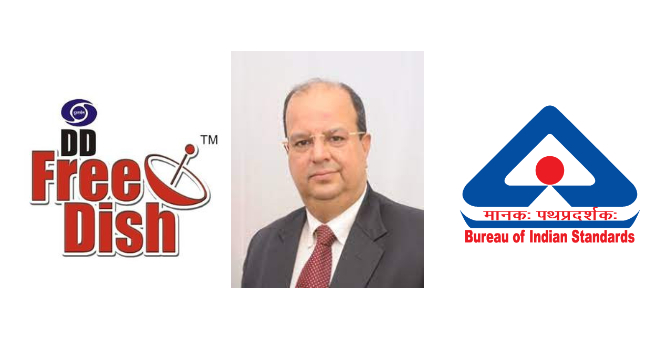By Rajeev Khattar
The cable and DTH industry woes do not seem to end. Whether it’s the streamers who have impacted subscriber numbers or the inadequate regulations failing to keep pace with the changing times, all have contributed to a steady decline in numbers for cable and DTH operators. And, this is based on data released by regulator TRAI, which highlights quarter by quarter fall in subscriber numbers.
With the public broadcaster Doordarshan now aggressively pushing for built-in satellite tuners in TV — enabling easier access to DD FreeDish FTA satellite service — without the need for a set top box( STB), the traditional distribution sectors are up against another bump.
Having in-built satellite tuners in TV sets will enable the migration of the subscribers from cable TV or pay DTH to DD Freedish at no cost, thus further hitting the pay distribution business, which is already reeling under the pressure from the OTT services and the uncertainty relating to TRAI’s tariff order, NTO 2.0 to be specific.
The DD moves may not be also good news for the pay broadcasters, who have been a silent watcher of the events. Any decline in pay TV subscribers will mean their revenues will also be hit. They may have thought that this may give a push to their OTT apps, but the reality is that a significant part of their revenues, both subscription and advertisement, still comes from pay TV subscribers of cable and DTH.
DD has been pushing the Bureau of Indian Standards (BIS) for finalizing the specs for digital TV with built-in television tuners. The way the idea is being peddled raises concerns whether all the factors have been properly evaluated.
For starters, will this move be in the larger interest of the TV entertainment industry, consumers, and cable and DTH operators in particular? More importantly, has DD FreeDish studied the long-term impact of such a hurried implementation? BIS will be failing in its duty if it fails to understand the long-term implications of pushing a product in a selective manner.
In one of the BIS meetings, government officials mentioned that DD has plans to go encrypted when it adds more channels to the FreeDish platform after being allotted new transponders on Indian satellites.
But, till that happens, a present court case against the Ministry of Information and Broadcasting, brought on by a leading broadcasting company, brings forth important issues.
The broadcast company in its petition before a Delhi court has raised a valid question: should not the DD FreeDish signals be also encrypted as it’s a DTH operator and DTH license has no provision for unencrypted signals? The relevant licensing condition states: all content provided by the DTH platform to the subscribers, irrespective of its source, shall pass through the encryption and conditional access system, located within the earth station situated on Indian soil.
What’s more, DD FreeDish has not been given a DTH license and it is unclear under which statute it is operating. Its FTA service has been causing losses to the cable and DTH sectors and now the public broadcaster is muscling in to take control of the real estate within a TV set, without dwelling on the long-term socio-economic impact its actions will have on thousands of cable operators and the millions of people the sector employs.
If we seriously take DD’s plans to go encrypted in future, then the push to add only the satellite tuner, minus the USB CI+2.0 in digital television sets, is a step not in the right direction. At best, it’s a short-sighted approach. And, BIS, it seems, is under pressure while it races to formulate the digital TV specs.
What is more surprising is that while all this is happening, MIB is yet to take a call on TRAI’s recommendation on interoperability of STBs, which were submitted in April 2020.
The TRAI recommendations, in para 3.26.3, states “The Authority recommends mandatory provisioning of USB port based Common Interface (CI) for all digital TV sets in India. Ministry of Information and Broadcasting in coordination with TRAI and Ministry of Electronics and Information Technology (MeitY) may request BIS to amend the specifications for digital TV sets to include provisioning of USB-based Common Interface port as per DVB CI+ 2.0 standard based on ETSI TS 103 605 standards.
“Such specifications must mandate TV manufactures to: (a) Provide all digital TV sets with minimum one open-interface port based on DVB CI+ 2.0 standards permitting simple connection of USB CAM to allow reception of TV signals (b) Provide the digital TV sets with built-in tuners to enable reception of TV content through both satellite and cable platforms”
The implementation of the TRAI recommendations in totality would have been the best course of action for the industry, instead of selectively acting on it. Simply because, it would have given a level playing field to cable and DTH operators as also DD FreeDish, paving a way for the DD’s DTH service to get encrypted any time without confusing the customers on whether a STB was to be bought or not . It would have also met the demands from the DTH industry to remove the PCMCIA slot, which, they say, is costly and results in making their boxes expensive.
The pick and choose approach of the MIB and DD FreeDish is going to be detrimental to the growth of the industry and it is surprising that no cable operators’ industry organisation or a DTH operator have opposed such a move. Only recently, Dish TV has written to the BIS that it proposes digital television sets have USB CI+2.0 implemented along with the satellite tuner in the TV. The silence of other players is surprising.
Sony, as a TV manufacturer, has told BIS that implementing CI+ will take time, though the company has been selling the same products in Europe for the last one decade. Ditto for other TV manufacturers. All have models with CI incorporated for the European market, but have preferred to remain silent in a market like India that is presently giving them the maximum growth in terms of the TV sales.
Implementation of the TRAI recommendations on the interoperability would have gone a long way in making the objective of Make in India come alive, save the industry of USD 200 million a year minimum as the churn of the boxes could be avoided , have a positive impact on the country’s energy sector — imagine 100 million STBs operating a day and consuming 35 watts power — and the consumer will have one remote to deal with. More importantly, e-waste would have been reduced.
Hope MIB , MEITY, DD FreeDish and industry will dwell on it more and instead of just rushing into a new proposal of having sat tuners in every TV set, would consider all the facts on the table. But, more importantly, the industry now needs to step up and ask what is good for it.
(Rajiv Khattar, the author, is a media industry veteran and a consultant, specializing in tech and satellite matters. His last assignment was as the South Asia head for a global satellite company, ABS. Before that he spent almost two decades with the Zee group in various leadership positions in Siti Cable [now Siti Networks] and Dish TV. In between, for a short while he also did a stint at Reliance Industries’ media unit. The views expressed are those of the author and Indianbroadcastingworld.com is not responsible for them, nor subscribes to them.)
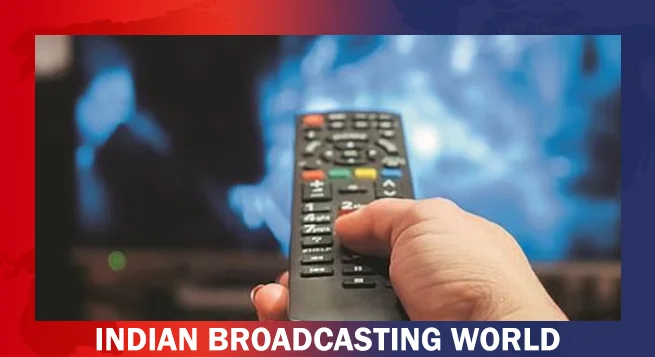 SC tells petitioner to take plea on OTT platforms to govt.
SC tells petitioner to take plea on OTT platforms to govt.  Network18 TV news biz revenue up 28% in Q4 FY24
Network18 TV news biz revenue up 28% in Q4 FY24 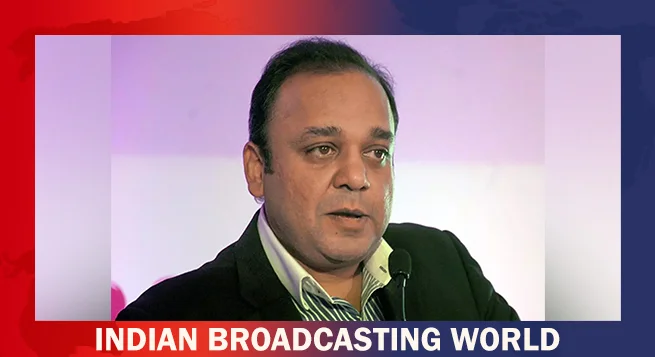 As Zee gets lean, Punit Goenka in charge of critical verticals
As Zee gets lean, Punit Goenka in charge of critical verticals 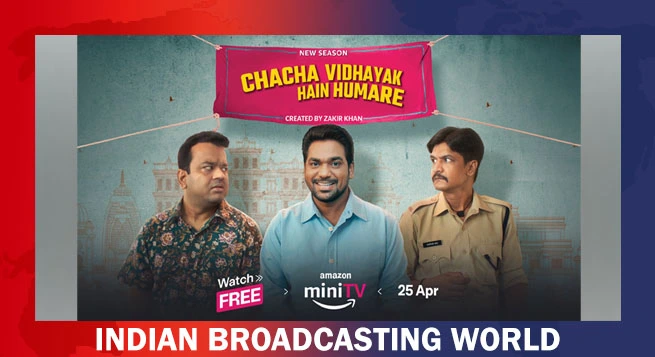 Amazon miniTV Drops Trailer for Season Three of Zakir Khan’s ‘Chacha Vidhayak Hain Humare’
Amazon miniTV Drops Trailer for Season Three of Zakir Khan’s ‘Chacha Vidhayak Hain Humare’ 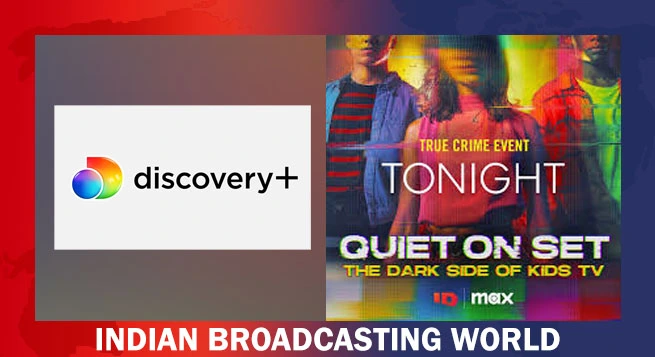 Quiet on Set: The Dark Side of Kids TV” Set to Premiere on discovery+ on April 26th
Quiet on Set: The Dark Side of Kids TV” Set to Premiere on discovery+ on April 26th  Zee Telugu to Premiere PAN-India Hit Movie “HanuMan” on April 28th
Zee Telugu to Premiere PAN-India Hit Movie “HanuMan” on April 28th 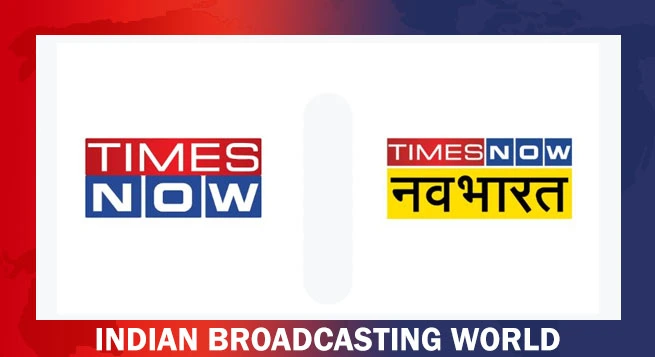 Times Now and Times Now Navbharat Unveil extensive programming line-up for 2024 General Elections
Times Now and Times Now Navbharat Unveil extensive programming line-up for 2024 General Elections  First Hindi Radio Broadcast Launches in Kuwait, Strengthening India-Kuwait Ties
First Hindi Radio Broadcast Launches in Kuwait, Strengthening India-Kuwait Ties 

